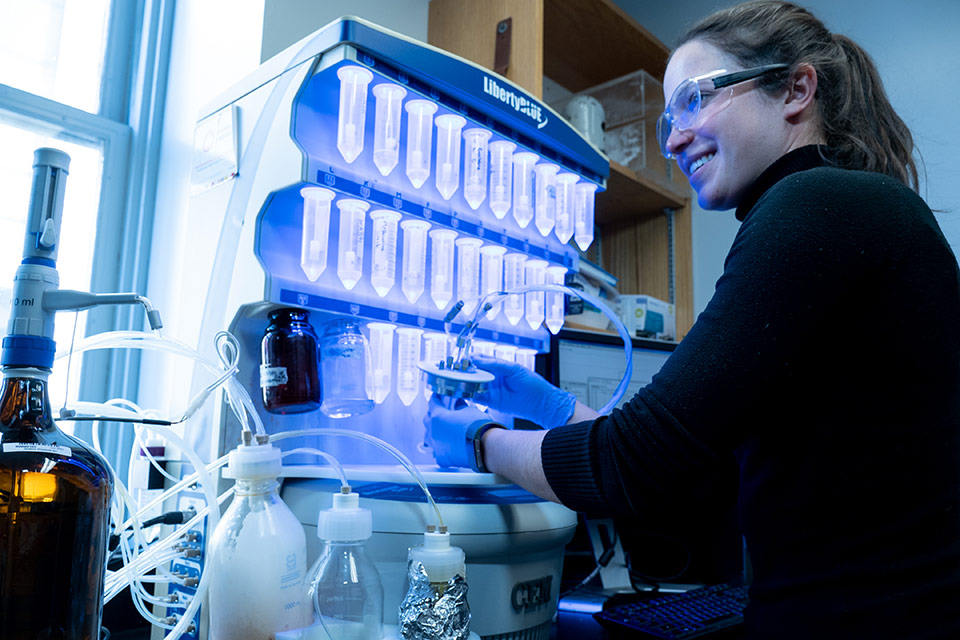
Careers in Chemical Engineering
Where can a career in chemical engineering take you?
Looking to make a lasting impact on the world around you? Chemical engineers improve the processes that produce food, medication, fuel energy, biomedical devices, and much more. As a Queen's Chemical Engineering student, you'll belong to one of the first Chemical Engineering programs in North America, established over 100 years ago.
Your education will cover the diversity of knowledge needed in chemical engineering. From mathematics, chemistry, physics, and biology to engineering science, design, and economics- chemical engineers use a wide range of expertise to work towards a single goal.
In this program, you will learn how to design safe, efficient, sustainable, and economical processes and products. You'll learn to analyze and design the chemical processes that span from molecular to macroscopic scales.
Take your learning beyond the theoretical in our state-of-the-art research labs. Our labs are equipped with high-quality, well-maintained equipment and a technical support team. Learn how to improve process operation and product quality by using laboratory experiments and statistical techniques to examine process data and create experiments. You'll use computer software tools for chemical process simulation, analysis, design, and control. You'll also have hands-on training with pilot-scale chemical process equipment and simulators.
With their versatile skillset, chemical engineers are sought after in a growing range of industries. A chemical engineer's expertise in finding cost-effective and safe solutions can take them just about anywhere- from small, specialized companies to industrial organizations. From working with biodegradable products, to improving medical devices, the work of chemical engineers can make a significant difference to the world around us.
The Chemical Engineering Program is a discipline within our common core program. Apply to general engineering, and at the end of first year, you are guaranteed your program of choice.
Queen's Chemical Engineering offers options in Chemical Process Engineering and in Biochemical Engineering. Depending upon their interests, students can choose elective courses in the following areas: biochemical; biomedical; environmental; process systems engineering; energy; materials.
Looking to get a head start on your career? The Queen’s Undergraduate Internship Program (QUIP) gives students the opportunity to take a full-time, paid 12–16-month internship. Apply your skills to the workplace and gain on-the-job experience as you work with one of our many industry partners.
Hear from Elaine Monteiro about her experience working full-time as an intern with Procter and Gamble.

Careers in Chemical Engineering
Where can a career in chemical engineering take you?
Undergraduate Studies Program Assistant
Liann Joanette
liann.joanette@queensu.ca
613-533-6000 ext. 74829
Dupuis Hall, Room 201